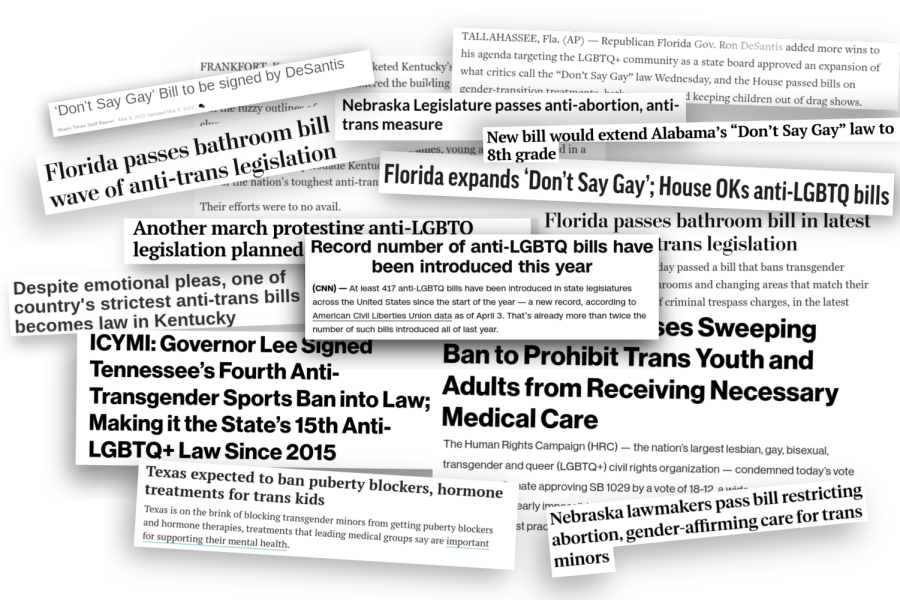Headlines and leads from news publications around the nation detail numerous anti-LGBTQ+ legislation currently being voted on in various states.
New laws across nation target queer students
May 30, 2023
In the first five months of this year, 130 anti-LGBTQ bills and laws have been signed into law across the country. The most prominent bill, known as the Don’t Say Gay bill, was expanded on April 19 to ban any mention of sexual activity and gender identity from grades 4-12 whereas the original only included grades K-3.
In recent months, various states such as Florida and Texas have instituted legislation that censors the discussion of sexual orientation and gender identity. In Texas, SB 1029 is currently going through committees but hasn’t been approved as of May 6. It serves to ban all gender affirming care from everyone within the state. The increase in proposed anti-gay legislation is concerning students who don’t even live in those states.
“I don’t fear for my safety here at Daniel Pearl (Magnet High School) because I’ve been here for so long and surrounded myself with people I know I can trust,” senior and Pride Club President Naamah Silcott said. “But I worry about the safety of other kids that are in places like Florida and other states that have adopted similar bills. It’s terrifying that kids can’t admit to who they really are without being stigmatized, brutalized or even disowned.”
Though no similar bill has survived in California, students at DPMHS are keeping up with the news happening across the country.
“These kids, they’re going to figure out about this eventually. It’s not protecting them from the gay by banning these books (and lessons),” senior Vincent Rincon said. “There are going to be queer kids in these states and by restricting these books, you’re doing nothing but harming their ability to come to terms with themselves.”
Just like students, teachers will also be affected by the laws being approved in various states. Teachers have to review the books and lesson plans from their classroom to make sure banned material isn’t discussed. Queer teachers in those states fear that they may lose their jobs or even have to leave the profession altogether.
“The fact that a lot of states that have this conservative viewpoint are starting to create this kind of legislation and put these ideas in the forefront is really dangerous and makes me feel like I can’t work anywhere else,” Pride Club sponsor Timothy Hughes said. “For a long time, I thought, maybe I don’t want to live in California forever. But if I go to Florida, not only would I be worried about queer students, but as a queer person myself, I would not be able to be openly who I am without feeling like I might lose my job.”
